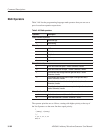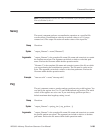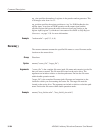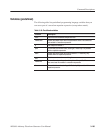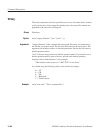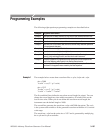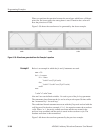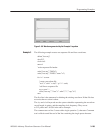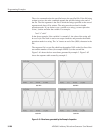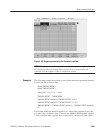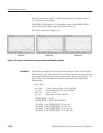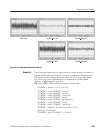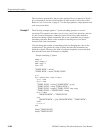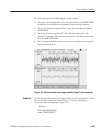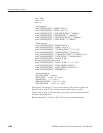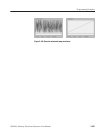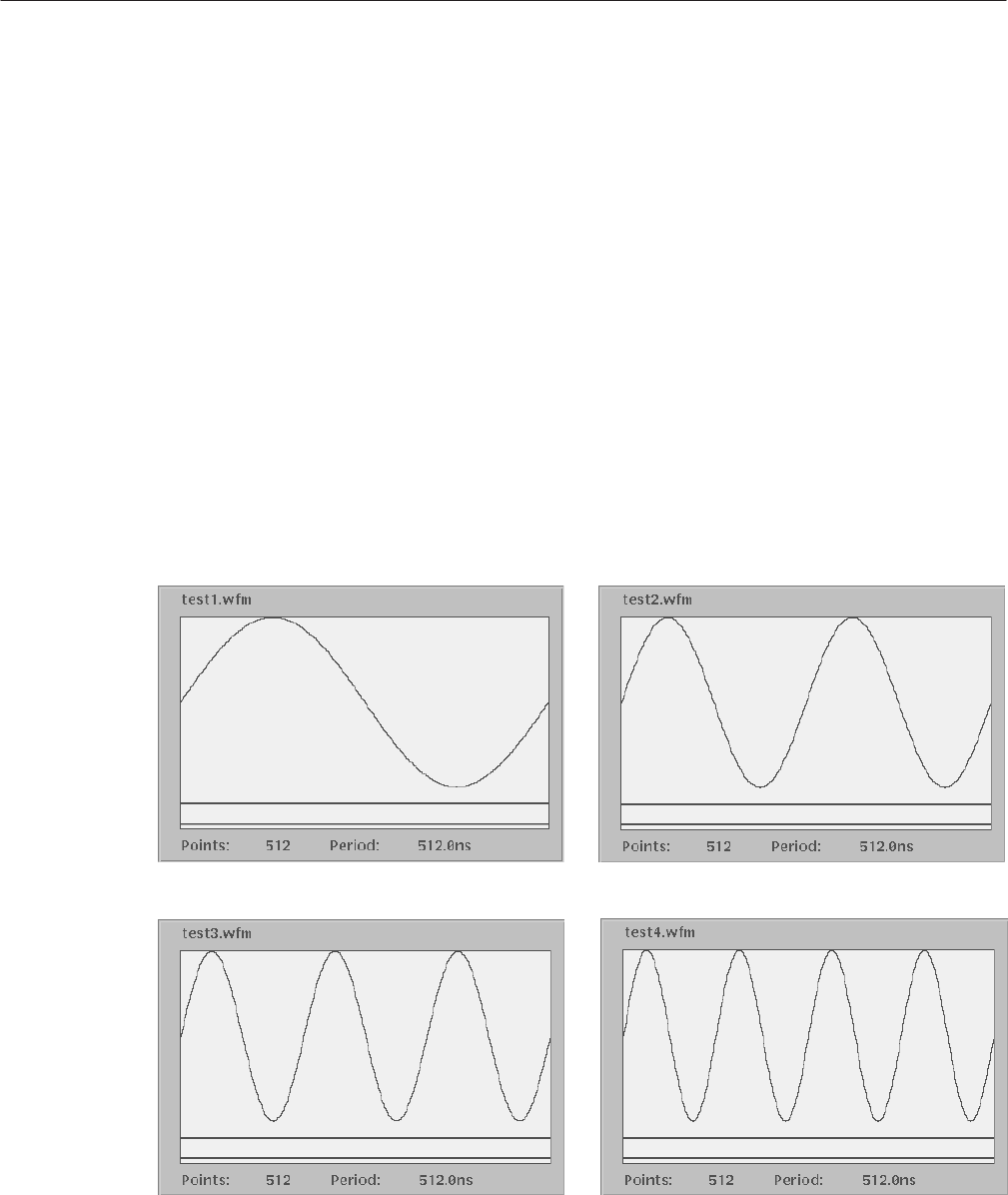
Programming Examples
3-200
AWG610 Arbitrary Waveform Generator User Manual
The write command writes the specified text to the specified file. If the file being
written to exists, the write command appends the specified string to the end of
the file. The first argument is the file to which the strings specified as the second
argument and after will be written. The string must be enclosed in double
quotation marks. If you desire to use a variable as a string, you must place the
colon (:) before and after the variable. For example:
”text”:i:”.wfm”
In the above example, if the variable i is currently 5, the value of the string will
be text5.wfm. The slash is used as an escape character, and precedes the double
quotation marks in a string. The ‘\n’ inserts an end of line (EOL) character in the
file.
The sequence file is a text file which has the number 3002 on the first line of the
text and the number of lines (for example LINES 4) on the second line.
Figure 3–61 shows the four waveforms generated by example 3. Figure 3–62
shows the sequence table created by example 3.
test1.wfm test2.wfm
test3.wfm
test4.wfm
Figure 3-61: Waveforms generated by the Example 3 equation



